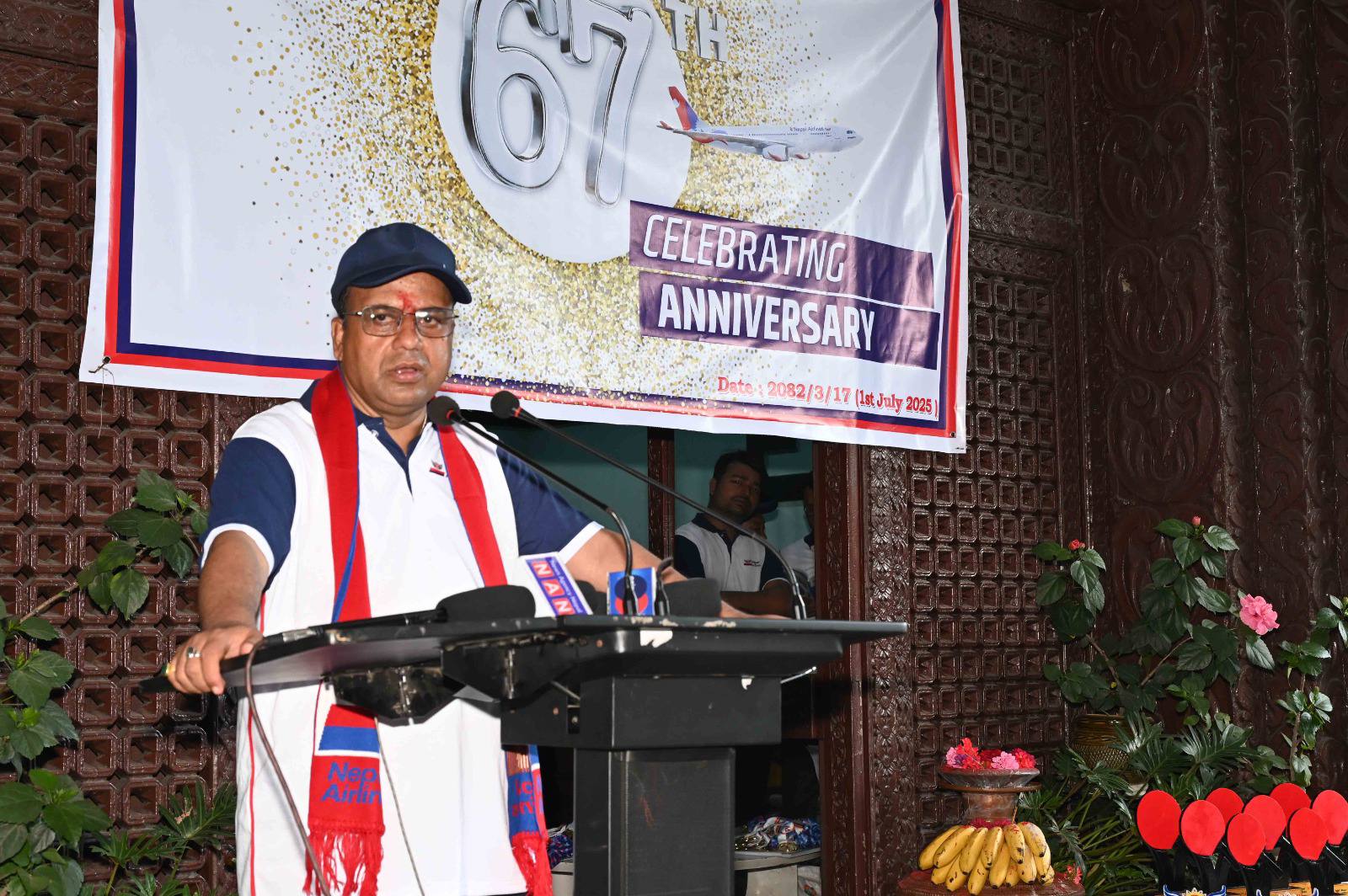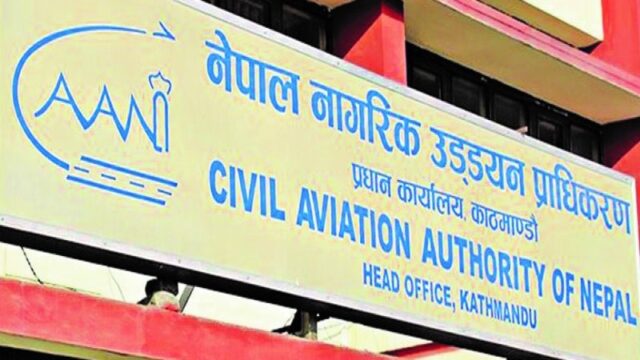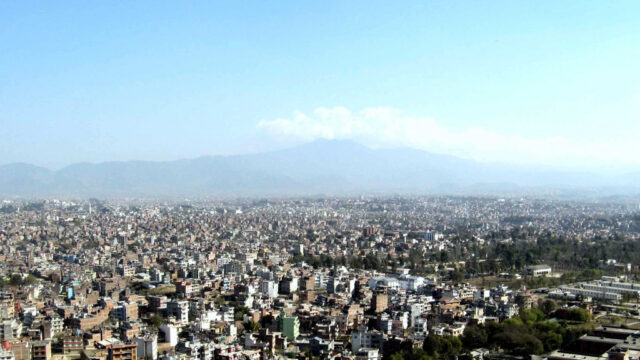Minister for Culture, Tourism and Civil Aviation, Badri Prasad Pandey, has emphasized the crucial role of Nepal Airlines Corporation (NAC) in the overall development of Nepal’s aviation sector. Speaking at a formal event held on the occasion of NAC’s 67th anniversary at its central office in New Road, Minister Pandey reaffirmed the government’s commitment to revitalize and support the national flag carrier, calling it the “backbone of the country’s tourism industry.”
NAC Holds Strategic Importance in National Development
Addressing the gathering, Minister Pandey said that strengthening NAC was not just important for the airline itself but was pivotal for the entire aviation ecosystem and Nepal’s national pride. “Nepal Airlines holds historical significance. Its development is essential not only to boost tourism but also to enhance the country’s connectivity and economic growth,” he stated.
He urged the NAC management and staff to focus on results-driven performance and transparent operations. “Work in a factual and result-oriented manner,” the Minister instructed, adding that the government would extend full cooperation in overcoming institutional and regulatory challenges.
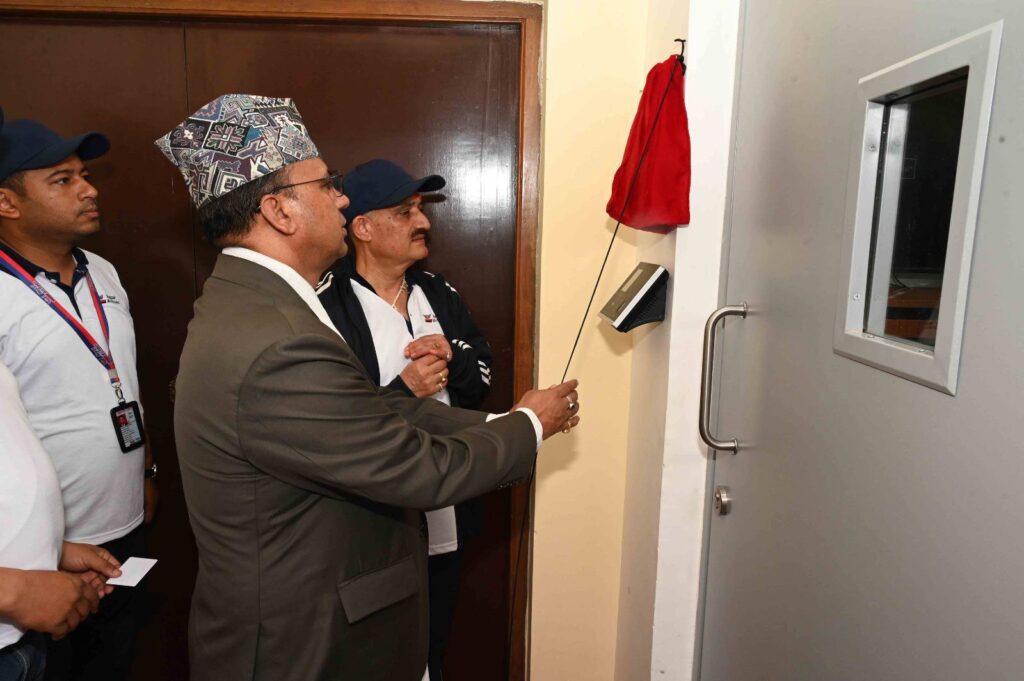
Procurement Hurdles Hampering Progress
During the event, NAC’s Executive Chairperson Yubraj Adhikari presented an overview of the corporation’s achievements and challenges. He underlined the role of public procurement laws as a significant hurdle that has slowed down the corporation’s modernization and expansion efforts.
Adhikari noted, “The Public Procurement Regulation remains the main obstacle in making swift and timely decisions. The delay in procurement affects both operations and competitiveness.” He stressed the need for reforms to allow greater autonomy and efficiency within the airline.
According to Adhikari, enhancing the corporation’s credibility through reliable, affordable, and safe service must be the guiding objective. “Our focus should be on offering affordable, trustworthy, and regular services that can build public trust and support long-term sustainability.”
NAC Celebrates 67 Years of Service
Nepal Airlines Corporation marked its 67th anniversary with a week-long series of events and celebrations, culminating in Monday’s formal programme. The ceremony saw the presence of senior officials, former employees, aviation experts, and stakeholders who paid tribute to the national carrier’s contributions since its inception.
Established on July 1, 1958, NAC started its journey with a Douglas DC-3 aircraft. Over the years, it has grown into the country’s primary international and domestic air service provider. Despite facing several financial and operational difficulties over the decades, NAC remains a symbol of national identity and connectivity.

Expanding International Operations
Currently, NAC operates international flights using two wide-body Airbus A330s and two narrow-body Airbus A320s. Its international destinations include major South and Southeast Asian cities such as New Delhi, Bangalore, and Mumbai in India; Hong Kong; Kuala Lumpur, Malaysia; Bangkok, Thailand; and Narita, Japan. In the Middle East, NAC serves Doha in Qatar, Dubai in the UAE, and Riyadh in Saudi Arabia.
These routes are strategically important not only for tourism and labor migration but also for enhancing Nepal’s diplomatic and economic ties. The airline’s expanding international network continues to play a vital role in connecting Nepal to key global markets.
Domestic Connectivity Still a Priority
On the domestic front, NAC operates two Twin Otter aircraft, mainly servicing remote and difficult-to-reach regions across Nepal. Although its domestic fleet has diminished over time, NAC still plays an essential role in providing access to underserved areas, especially during emergencies or weather disruptions.
Minister Pandey also highlighted the importance of reviving and expanding domestic air services to improve regional tourism and promote balanced national development. “We must not forget that NAC’s presence in rural and remote areas is a lifeline for many citizens,” he said.
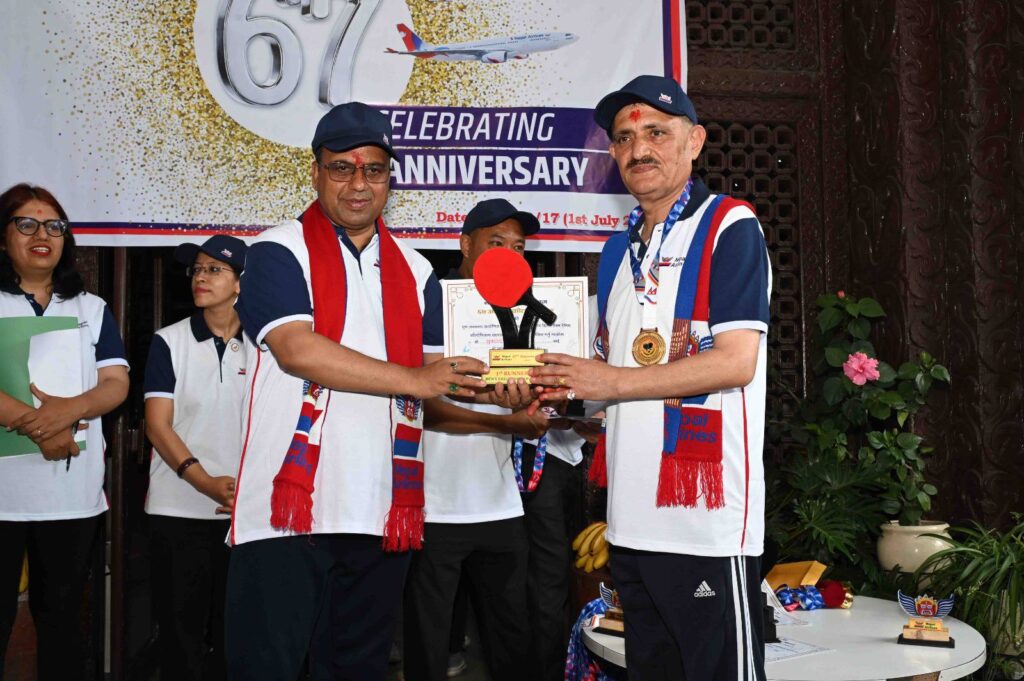
Looking Ahead: The Need for Reform and Vision
While celebrating its long history, the occasion also served as a moment of reflection and renewal. Both government officials and NAC executives acknowledged that the corporation must undergo structural reforms and adopt modern management practices to remain competitive in today’s fast-evolving aviation market.
Minister Pandey concluded his remarks by calling on all stakeholders to work collaboratively toward a future-ready NAC. “Let us take this anniversary not just as a celebration of the past, but as a stepping stone toward making Nepal Airlines a strong, efficient, and world-class national carrier.”
With ongoing plans for fleet expansion, better customer service, and digital transformation, NAC is hoping to reclaim its glory and better serve the needs of the Nepali people and the global tourism community in the years to come.
